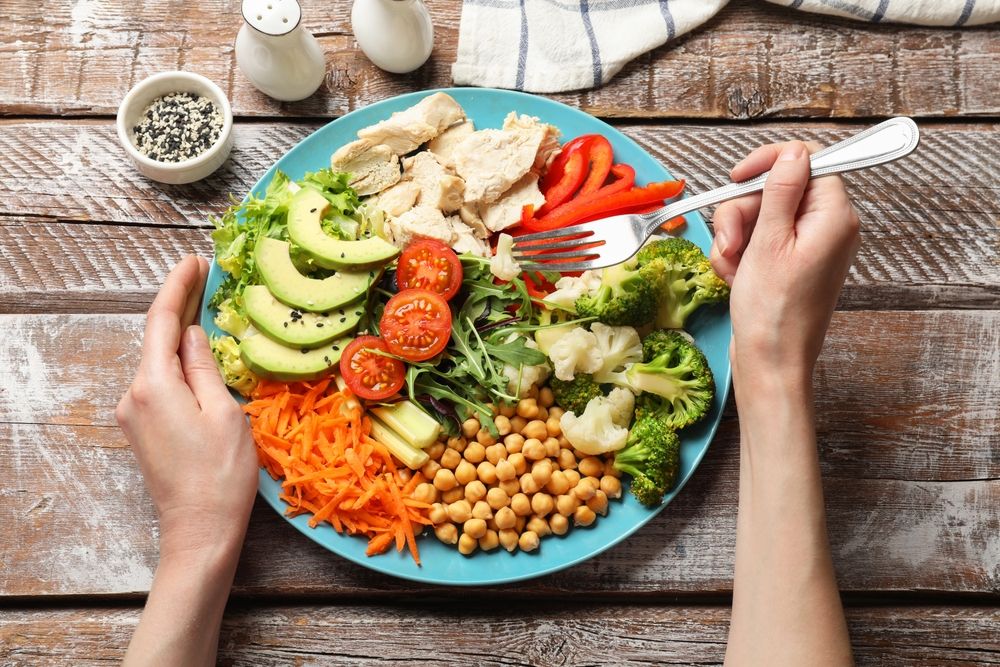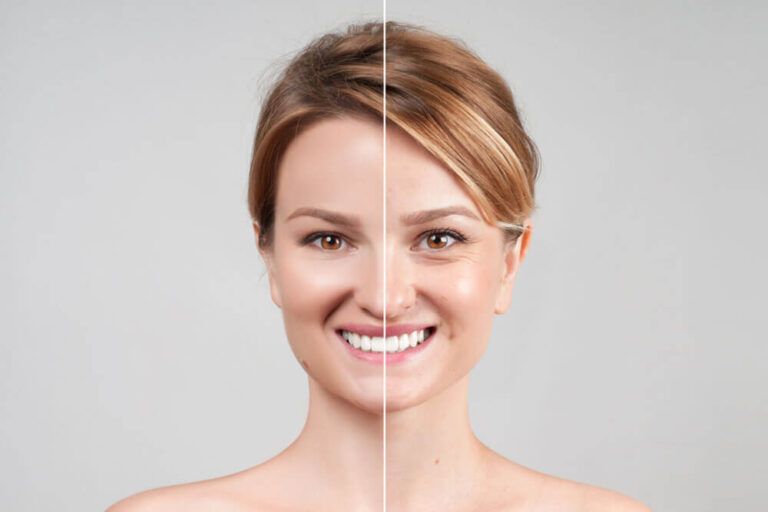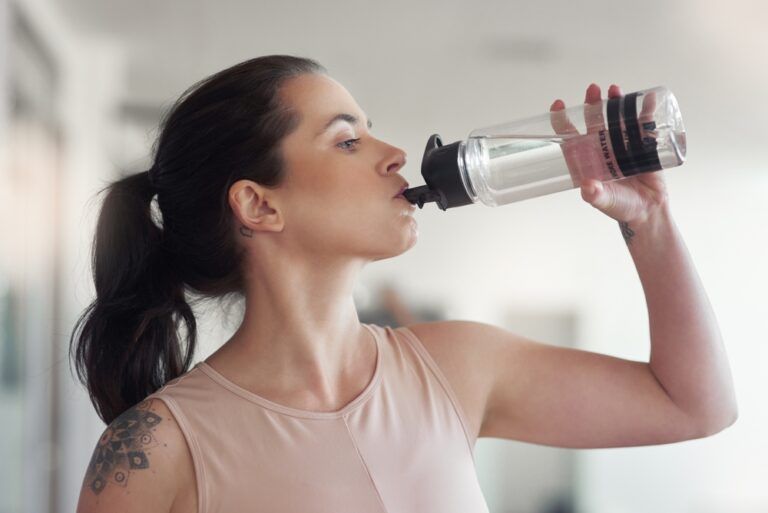Losing weight isn’t only about cutting calories, it’s about choosing the right foods that nourish your body, support your metabolism, and keep you feeling full and satisfied. While exercise and lifestyle habits play important roles, what you put on your plate can make a major difference in your weight loss journey. By focusing on nutrient-dense, whole foods that promote satiety and energy, you can fuel your body while reaching your goals more effectively. In this blog, we’ll explore some of the top foods for weight loss and how they can help you build a healthier, more balanced diet.
In This Blog:
- Why Diet Plays a Key Role in Weight Loss
- Lean Proteins That Keep You Full Longer
- Fiber-Rich Foods to Curb Cravings
- Healthy Fats That Support Metabolism
- Vegetables that Pack Volume with Few Calories
- Hydrating Foods That Help You Feel Full
- Foods to Limit or Avoid During Weight Loss
Why Diet Plays a Key Role in Weight Loss
When it comes to losing weight, diet is often the most critical factor. While physical activity helps burn calories, the food you consume determines your overall energy intake, nutrient absorption, and metabolic function. Choosing the right foods can help you feel fuller longer, regulate blood sugar levels, reduce cravings, and improve digestion, all of which are essential for effective weight loss. Importantly, focusing on nutrient-dense foods rather than simply eating less ensures your body gets the vitamins, minerals, and macronutrients it needs to stay energized and healthy during the process.
Lean Proteins That Keep You Full Longer
Protein is a key nutrient for weight loss because it helps reduce appetite and preserve lean muscle mass, which is vital for maintaining a healthy metabolism. Including protein in your meals can enhance satiety and decrease the likelihood of overeating.
Some of the best lean protein options include:
- Skinless chicken breast: High in protein and low in fat, it’s a versatile choice for any meal.
- Turkey: Another lean poultry option that offers essential amino acids.
- Eggs: Packed with protein and healthy fats, eggs are great for breakfast or snacks.
- Greek yogurt: Higher in protein than regular yogurt, and it also contains probiotics.
- Tofu and tempeh: Plant-based alternatives that are rich in protein and suitable for vegetarians or vegans.
- Fish like salmon and tuna: These not only provide high-quality protein but also offer omega-3 fatty acids, which support heart and brain health.
Including a source of lean protein in each meal helps stabilize blood sugar levels and keeps hunger at bay.
Fiber-Rich Foods to Curb Cravings
Fiber is another powerful tool in weight loss. It slows down digestion, stabilizes blood sugar, and promotes feelings of fullness, which can help reduce overall calorie intake. Foods high in fiber often take longer to chew and digest, allowing your body more time to recognize fullness and prevent unnecessary snacking.
Top fiber-rich foods include:
- Oats: A great source of soluble fiber that supports heart health and digestion.
- Lentils and beans: High in both fiber and protein, these legumes are excellent for keeping you full.
- Chia seeds and flaxseeds: Just a tablespoon adds a fiber boost to smoothies, yogurt, or oatmeal.
- Berries: Low in calories and rich in antioxidants and fiber, they’re ideal for healthy snacking.
- Apples and pears (with the skin): Contain both soluble and insoluble fiber and make for convenient, satisfying snacks.
A fiber-rich diet not only aids in weight loss but also supports a healthy gut microbiome, which plays a role in metabolism and overall well-being.
Healthy Fats That Support Metabolism
Despite their calorie density, healthy fats are essential for weight loss. They provide long-lasting energy, support hormone production, and help absorb fat-soluble vitamins like A, D, E, and K. When consumed in moderation, healthy fats can enhance satiety and reduce the urge to snack on less nutritious foods.
Some of the best sources of healthy fats include:
- Avocados: Rich in monounsaturated fats and fiber, avocados promote fullness and heart health.
- Nuts and seeds: Almonds, walnuts, chia seeds, and sunflower seeds are packed with healthy fats, protein, and fiber.
- Olive oil: A staple of the Mediterranean diet, it’s known for its anti-inflammatory and heart-protective properties.
- Fatty fish: Salmon, sardines, and mackerel provide omega-3 fatty acids that help regulate metabolism and reduce inflammation.
Replacing trans fats and saturated fats with these healthier options can support your weight loss goals without sacrificing flavor or satisfaction.
Vegetables That Pack Volume with Few Calories
Non-starchy vegetables are incredibly beneficial for weight loss because they provide volume, vitamins, and fiber with very few calories. These foods fill up your plate and your stomach, helping you feel full without overloading on calories.
Top non-starchy vegetables to include regularly:
- Leafy greens: Spinach, kale, arugula, and romaine are low in calories and high in nutrients.
- Cruciferous vegetables: Broccoli, cauliflower, cabbage, and Brussels sprouts support detoxification and digestion.
- Bell peppers: Sweet, crunchy, and loaded with vitamin C.
- Zucchini and cucumbers: High in water content and great for hydration and volume.
- Carrots and celery: Crunchy, portable, and excellent for snacking.
Incorporating a variety of these vegetables into your meals allows you to eat larger portions without exceeding your calorie budget.
Hydrating Foods That Help You Feel Full
Staying hydrated is essential for weight loss, and many people mistake thirst for hunger. Consuming foods with a high water content not only supports hydration but also contributes to a sense of fullness and satiety.
Hydrating, low-calorie foods include:
- Watermelon: Refreshing and naturally sweet, it’s perfect for snacking on hot days.
- Cucumbers: Made up of over 95% water and great in salads or as a crunchy snack.
- Tomatoes: Versatile and full of water, they’re great in both raw and cooked dishes.
- Celery: Ultra-low in calories and ideal for pairing with protein-rich dips like hummus.
- Lettuce and romaine:Excellent as a salad base or lettuce wrap alternative to bread.
Eating hydrating foods throughout the day can prevent overeating and keep your digestive system functioning smoothly.
Foods to Limit or Avoid During Weight Loss
While certain foods support weight loss, others can hinder progress by promoting cravings, contributing to blood sugar spikes, and adding excessive calories with little nutritional value.
Limit or avoid the following:
- Refined carbohydrates: White bread, pastries, and sugary cereals offer quick energy but lead to crashes and hunger.
- Added sugars: Found in soft drinks, candy, flavored yogurts, and sauces, added sugars are high in calories and low in nutrients.
- Fried foods: Often high in trans fats and calories, they can slow down digestion and increase inflammation.
- Sweetened beverages: Soda, sweetened coffee drinks, and energy drinks contribute empty calories and sugar overload.
- Highly processed “diet” foods: Many low-calorie or low-fat processed items contain artificial ingredients, preservatives, and hidden sugars that may sabotage your efforts.
Focusing on whole, minimally processed foods is a more sustainable approach to losing weight and maintaining it long-term.
Conclusion
Achieving and maintaining a healthy weight starts with making smart food choices. By focusing on lean proteins, fiber-rich options, healthy fats, hydrating produce, and nutrient-dense vegetables, you can create a diet that not only supports weight loss but also enhances your overall health and well-being. Just as important is knowing which foods to limit, so you can avoid hidden calories and stay on track with your goals. Remember, weight loss is a journey, not a quick fix, and the foods you choose can empower you to succeed in a sustainable and satisfying way.
Ready to take control of your weight loss journey? At Modern Image Aesthetics and Wellness, we offer personalized nutrition guidance and innovative body contouring treatments like the Cutera TruBody System to help you look and feel your best. Schedule a consultation today to discover how we can support your health and wellness goals with a holistic, science-backed approach.














